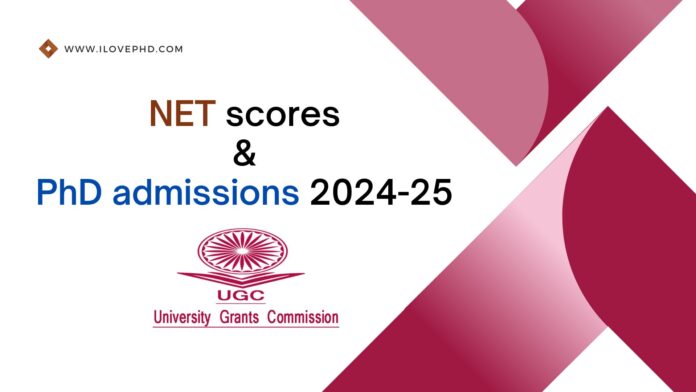Are you an aspiring scholar dreaming of pursuing a Ph.D.? If so, there’s exciting news on the horizon that could potentially reshape your academic journey. The National Eligibility Test (NET), an established benchmark for Junior Research Fellowship (JRF) and Assistant Professor eligibility, is undergoing a transformative shift, poised to become the primary gateway for admission to Ph.D. programs across India.
UGC Acceptes NET Scores Accepted for Ph.D. Admissions Starting 2024-25
Traditionally, universities have conducted their entrance exams for Ph.D. admissions, adding layers of complexity and uncertainty for prospective students. However, in a groundbreaking move aligned with the National Education Policy 2020, the University Grants Commission (UGC) has set the stage for a streamlined process by integrating NET scores into Ph.D. admissions.
Let’s delve deeper into this groundbreaking development:
Evolution of NET:
The National Eligibility Test, administered by the National Testing Agency (NTA) biannually, has long been recognized as a prestigious examination, offering JRF opportunities and eligibility for Assistant Professor positions. Its significance transcends academic circles, serving as a testament to a candidate’s scholarly prowess and research potential.
The UGC’s Paradigm Shift:
In a landmark decision during its 578th Meeting on 13th March 2024, the UGC embraced the recommendations of an expert committee, paving the way for NET scores to serve as the cornerstone for Ph.D. admissions. Effective from the academic session 2024-25, this transformative policy aims to streamline the admission process, eliminate redundancy, and uphold the principles of meritocracy.
Three Distinct Categories:
Under the revamped framework, candidates qualifying through NET will fall into three distinct categories:
- Category-1: Eligible for Ph.D. admission with JRF and Assistant Professorship.
- Category-2: Eligible for Ph.D. admission without JRF but with Assistant Professorship.
- Category-3: Eligible solely for Ph.D. admission, excluding JRF and Assistant Professorship.
This categorical breakdown ensures clarity and transparency, aligning candidates’ aspirations with their eligibility criteria.
Merit-Based Admissions:
Gone are the days of cumbersome entrance exams! Instead, the revamped admission process emphasizes meritocracy, with NET scores serving as the primary determinant. For Category-1 candidates, the path to Ph.D. and academic excellence is illuminated by the dual prospects of JRF and Assistant Professorship.
A Holistic Approach:
Acknowledging the multifaceted nature of scholarly aptitude, the UGC emphasizes a holistic approach to Ph.D. admissions. While test scores carry significant weight, interviews play a pivotal role in assessing candidates’ research acumen and intellectual agility. This balanced approach ensures that deserving candidates are not only academically proficient but also possess the requisite analytical and communication skills.
Validity and Future Prospects:
The validity of NET scores extends beyond mere admission, offering a lifeline to candidates for one year, thereby fostering flexibility and accessibility in the pursuit of higher education. Moreover, the imminent release of the NET June 2024 notification and Bulletin of Information by the National Testing Agency underscores the government’s commitment to transparency and inclusivity.
In conclusion, the integration of NET scores into Ph.D. admissions heralds a new era of inclusivity, transparency, and meritocracy in academia. Aspiring scholars can now embark on their Ph.D. journey with renewed optimism, armed with the knowledge that their academic endeavors are not just validated but celebrated through a rigorous yet equitable selection process.
For more updates and insights on academic advancements, stay tuned to ilovephd.com, your ultimate destination for all things Ph.D.!

